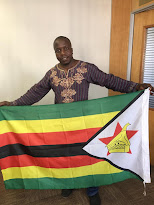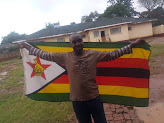 |
| The beautiful Victoria Falls |
The capital city of Zimbabwe is called Harare. 'Haa' means 'no', 'rara' means 'sleep', so Harare means, he doesn’t sleep. Zimbabwe has a multicurrency system with the local Zimbabwe Dollar being the base currency, however the U.S. Dollar is the most preferred currency.
At the time, the colonial government went ahead and banned this party and that led to the formation of Zimbabwe Africa People’s Union (ZAPU), which later Mugabe and other former party members formed their own movement called Zimbabwe African National Union (ZANU) in Tanzania.

The country's economy is driven by minerals and Agriculture with tourism making a significant contribution.
 |
| The House of Stones, Masvingo |
Have you ever wondered where the former Southern Rhodesia derived its present day name from?
Well, the name Zimbabwe is a combination of two words: Dzimba, which means house and Mabwe which refers to stones both from the Shona language.
The name Zimbabwe therefore, literally means House of Stones, as archeological evidence of settlement seen, dates back to 100, 000 years ago.
The first state was founded in Masvingo, now the 5th largest city in modern day Zimbabwe. To date, a stone monument (the house of stones) believed to have been in the 11th century, still stands in Masvingo. It is purely built with stones without mortar.
 |
| The late Robert Mugabe |
Politically speaking, at one point in time in its history, the name Zimbabwe and Robert Mugabe became so synonymous, that to any foreigner who had never been to Zimbabwe, if you asked them what they know about the country, the name Mugabe would never miss on their lips.
History books indicate that around 1880 a group of British settlers led by Cecil John Rhodes arrived in Zimbabwe and by 1890 the settlers raised the Union Jack (British Flag) in Harare, declaring Zimbabwe a British Colony and renaming it to Rhodesia.
In the early day Africa, besides deep rooted beliefs in our customs and cultures, Africans too believed in deities, ancestors, black magic, voodoo. In Zimbabwe, it is informed that the natives resisted the British rule, a resistance that was led by a lady spirit medium by the name Charwe Nyakasikana possessed by the Spirit of Mbuya (grand-mother in Shona language) Nehanda and Sekuru (grand-father in Shona language) Kaguvi. Kaguvi had the Murenga spirit (Spirit of war). The first war of liberation, Chi-Murenga broke off in 1896. The arrest of Mbuya Nehanda and Kaguvi, and their subsequent execution ended the first Chi-Murenga.
In the early day Africa, besides deep rooted beliefs in our customs and cultures, Africans too believed in deities, ancestors, black magic, voodoo. In Zimbabwe, it is informed that the natives resisted the British rule, a resistance that was led by a lady spirit medium by the name Charwe Nyakasikana possessed by the Spirit of Mbuya (grand-mother in Shona language) Nehanda and Sekuru (grand-father in Shona language) Kaguvi. Kaguvi had the Murenga spirit (Spirit of war). The first war of liberation, Chi-Murenga broke off in 1896. The arrest of Mbuya Nehanda and Kaguvi, and their subsequent execution ended the first Chi-Murenga.
 |
| Capture of Mbuya Nehanda And Sekuru Kaguvi |
It was in 1960 when the colonial government started displacing black families with the explosion of the white population. Black majority rule had also been denied and this led to violent protests in the country. The late former president Mugabe had been elected as the public secretary of the National Democratic Party that was forefront in spreading word about achieving black independence in Rhodesia.
 |
| The Execution in 1897 |
At the time, the colonial government went ahead and banned this party and that led to the formation of Zimbabwe Africa People’s Union (ZAPU), which later Mugabe and other former party members formed their own movement called Zimbabwe African National Union (ZANU) in Tanzania.
The liberation of other African countries led to the rise of resistant groups, who with the support of fellow African countries, together with Russia and China began to skip the borders to get military training. In 1966 in the city of Chinhoyi, the second Chi-Murenga started and lasted until 1980, when the Southern Rhodesia was finally liberated from British rule and the country became the independent Republic of Zimbabwe.
Did you know that the founding father of Zimbabwe, Robert Gabriel Mugabe had seven earned degrees and a Master’s degree? Now you know. Statistics show that literacy levels in Africa stand at 65% of the continent’s population which according to United Nations estimates of July 21, 2020, stand at 1.3 billion people.
 |
| The flag of the Republic of Zimbabwe |
According to the World Population index, as of July 1, 2020, Zimbabwe has a population estimate of approximately 15 million. Of this populace, about 66% are rural settlers and 34% make up the urban settlers. Zimbabwe is predominantly a Christian nation with about 85% of the people professing this religion, Islam, African traditions and other religions are also practiced in Zimbabwe.
Did you know that the founding father of Zimbabwe, Robert Gabriel Mugabe had seven earned degrees and a Master’s degree? Now you know. Statistics show that literacy levels in Africa stand at 65% of the continent’s population which according to United Nations estimates of July 21, 2020, stand at 1.3 billion people.
 |
| A Zimbabwean |
The late Mugabe was not only the most learned president in Africa, he also led a country that had very high literacy levels. Zimbabwe literacy rate stands at 89% with male literacy at 89% and female literacy at 88%, ranking Zimbabwe at number 88 in world ranks on literacy levels. Primary education is a basic right in Zimbabwe.
There are seven state and three private universities in the country, with the most prestigious university being University of Zimbabwe ranked number 1 nationally, and 72 best in Africa.
The people of Zimbabwe are called Zimbabweans, and they are known to be peace loving people complemented with their hospitality and accommodating nature. Zimbabweans are a true embodiment of the Ubuntu Spirit, and it’s very easy for them to embrace people from other nations.
The people of Zimbabwe are called Zimbabweans, and they are known to be peace loving people complemented with their hospitality and accommodating nature. Zimbabweans are a true embodiment of the Ubuntu Spirit, and it’s very easy for them to embrace people from other nations.
Zimbabwean men are popular in the region especially South Africa for their love and affection, some say their popularity with women from the region is largely due to their ‘size’ testimonials from social media circles support that. Sungura music is the most popular genre in the country. There is also Zimdance hall which commands a huge following among the youth.

 |
The Eastern Highlands |
The majestic Victoria Falls stands out as the greatest tourist attraction sites in Zimbabwe. Although, Victoria Falls is on the border of Zambia and Zimbabwe, a better glimpse of the falls can be seen from the Zimbabwean side.
The good thing about Zimbabwe’s tourist sites is that they are spread across the country’s ten provinces, with Inyangani mountain and Eastern highlands in Manicaland, Balancing Rocks in Harare, Kariba Dam in Mashonaland West, Great Zimbabwe ruins in Masvingo, Victoria Falls in Matebeleland North, Gonarezhou National Park in the low velds of Chiredzi, Matopos in Matebelaland South and many others. Every of the 10 provinces has a site worth visiting.
Notable Names in Zimbabwe include;
- The late Robert Mugabe the founding father of our nation tops the list.
- Kirsty Coventry an Olympic gold medalist and current Minister of Sports.
- Strive Masiwa is the only Billionaire in the country, and business magnet founder of Econet, Mascom, Kwese, Liquid telecom just to name but a few.
- Peter Ndhlovu was the first black African to play in the famous English Premier League, when he featured for Coventry Football Club as an 18-year-old.
- The late Oliver Mutukudzi, the award winning Afro- Jazz musician.
- Bishop Tudor Bismark an International televangelist of Jabula International
- Jah Prazah is the most popular musician at the moment.
#Visit Zimbabwe
#+263
References
https://www.volcanoesnationalparkrwanda.com/blog/rwandas-gorilla-naming-ceremony-2019.html
https://www.biography.com/political-figure/robert-mugabe
https://www.worldometers.info/world-population/population-by-country/
Joseph Kabira
Terry Gerald Murau
Simbarashe Musandisiye




